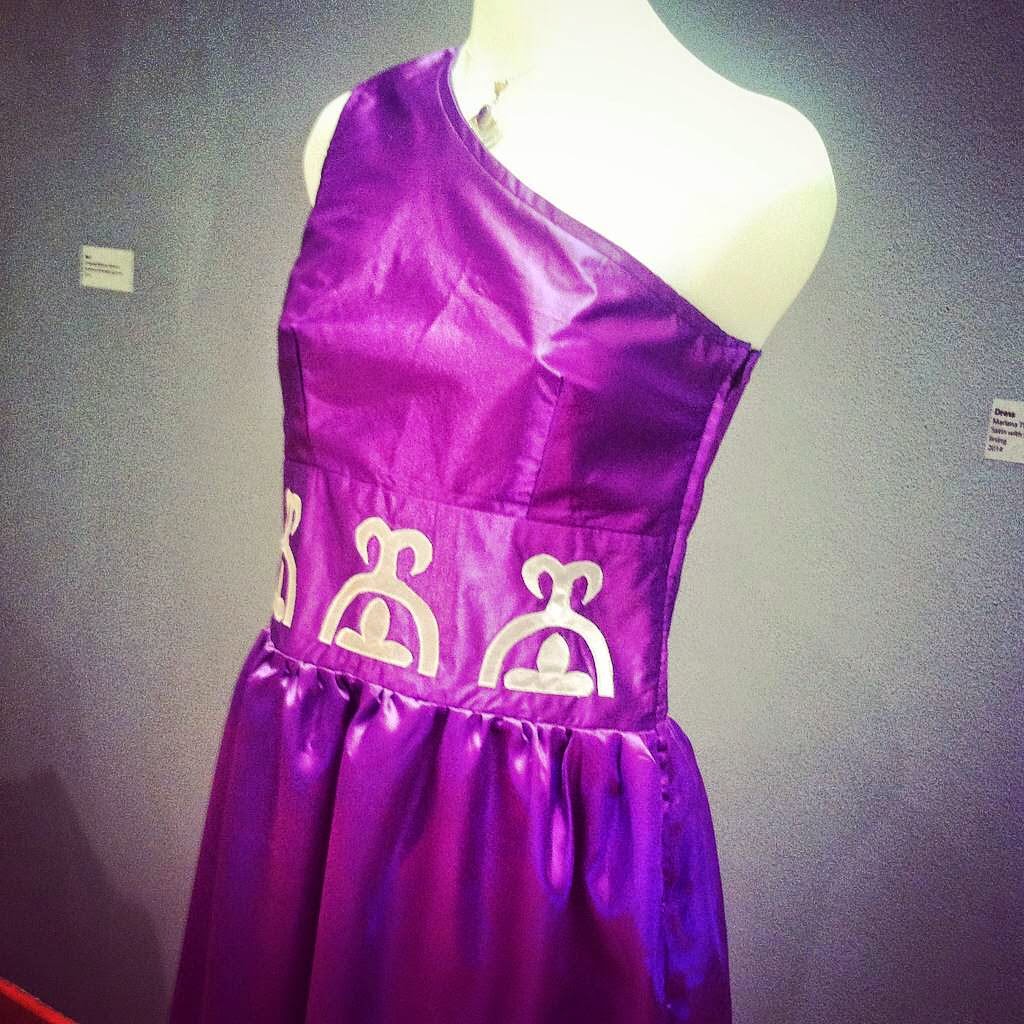 Imagine corn husk boleros, beaded high heeled moccasins, flowing black buckskin, and powwow-inspired accessories.
Imagine corn husk boleros, beaded high heeled moccasins, flowing black buckskin, and powwow-inspired accessories.Bikinis with Iroquois pottery patterns, a cocktail dress emblazoned with the Sky Dome symbol, a beaded turtle medallion, and a coat that tells a creation story.
This is the new exhibit at the Iroquois Indian Museum, titled Buckskin to Bikinis: Haudenosaunee Wearable Art.
It's an of-the-moment exhibit, featuring only contemporary fashion, and The Native fashion world is getting a boost by other museums, either currently showing exhibits, or about to launch this year. Indeed it's an exciting time for fashion designers and their patrons.
"While handcrafted outfits and regalia remain central to Haudenosaunee ceremonial and social life, Buckskin to Bikinis turns its spotlight on those who actively expand the traditions of form, function, and fabric in original and unexpected directions."
For this exhibit, Haudenosaunee designers sit center stage. And while they are united by all being Iroquois, their garments couldn't be more individually unique.
"From the urban tagging street style of Peter Loran to the sumptuous elegance of Bruno Henry, we invite you to explore the physical and figurative pliancy of apparel as a vehicle for communication, expression, and self-definition."
“Aboriginal people generally know the meanings of these symbols – the properties of animals and their spiritual significance. Once non-Natives learn the meaning of the symbols on my clothes, they understand the approach and the fact that these garments hold a strong and significant message.” Kim Picard (Montagnais/Algonquin/Mohawk)
“It’s clear the fashion industry sees us. This is an incredible time to act …This does not mean we stop, shut down and hide because we are scared they will continue to take from us. Let’s elevate and rise to the occasion. Keep creating, keep being inspired, keep moving our people forward.”
The exhibit is open from April until November at the Iroquois Indian Museum in New York. Click here for details.




